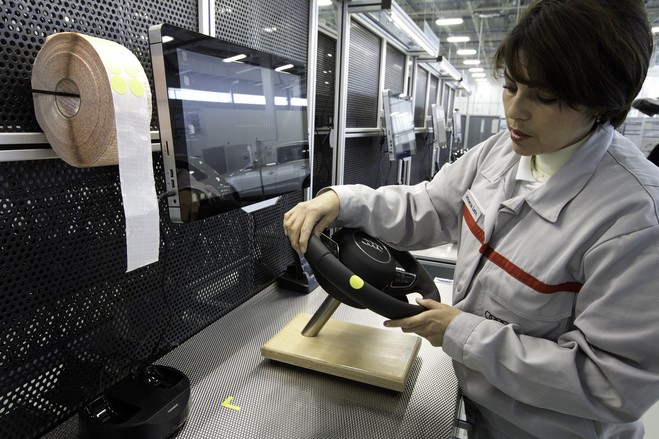A Chinese truck manufacturing company, SINO Truck of China has completed
arrangements to establish an assembling plant in Calabar, the Cross River
State capital.
This was disclosed recently when the company’s Head of African Division,
Mr. John Wang, paid the state governor, Professor Ben Ayade, a courtesy
call in his office in Calabar.
According to Wang, the setting up of the assembling plant would be
preceded with the establishment of service centres all over the state for
all the company’s trucks in Nigeria.
Wang disclosed that the establishment of SINO assembling plant in the
state has to do with its first class infrastructure and the nature of the
people.ý
He also cited the peaceful investment climate in the state as one of the
motivating factors, adding that “Cross River is the most peaceful in the
South South with an enduring weather that has a huge potential for the
development of trucks and is good for industry establishment.”
Giving a profile of his company, Wang also added that “Sino Truck is a
state owned company and the number one heavy duty truck manufacturing
company in China with over 56 years experience, with a good record in
truck manufacturing and assembly.”
In his remark, Governor Ayade urged the company to speed up preparations
for the auto plant as all the enabling infrastructural environment like
the construction of a deep seaport and a superhighway was being put in
place.
Ayade said the decision by the Chinese firm to site a truck assembling
plant in Calabar was largely because of the social climate and peaceful
nature of the state, noting that this will complement his administration’s
efforts in industrializing of
the state.
The governor expressed optimism that the investment is viable as both the
investors and the local economy would benefit from such investment
relationship.
Ayade noted that in a bid to fast track the planting of 5 million trees to
support climate change, it was pertinent that haulage will be a core
component as there will be movement of young seedlings from one part of
the state to another.
He said: “With our aggressive climate change campaign for which the World
Bank is setting up 16 billion dollars for Africa and the United Nations
setting aside 100 billion dollars annually for developing countries. You
can see that transportation of young seedlings for planting, vegetation
and forest cover becomes a key issue.”
Disclosing that the state, under a partnership agreement, is building the
biggest garment factory in Africa, among other things, Ayade said: “We are
far more prepared and more geared towards the utilisation of the product
more than you can imagine,” adding that “the amount of manufacturing will
be so huge that the haulage component will be massive.”
He further disclosed that “Cross River State government is building a new
city dedicated to haulage. The state is also committed to building a
strategic petroleum and gas reserve for Nigeria in the same area with the
haulage city.
“Taking advantage of 123 kilometres of Atlantic coastline, it gives you an
idea of the volume of trucks and vehicular movement of materials and
equipment that will take place in Cross River State as we are building a
deep Seaport which our detail design shows will be 14.5 metres in terms of
draught. The phase two of the deep seaport will be a span of 1.2
kilometres. That automatically will make it the deepest seaport in Africa
and therefore, can take any vessel.”
Ayade also said that the position of Calabar on the world map makes it a
more viable option in shipping than anywhere else, even as he hoped that
the seaport and superhighway, upon completion will prove preliminary
studies that the port is viable.
On the anticipated traffic volume, Ayade averred that the 260 kilometres
long superhighway will have six lanes, traffic ambulatory services, as
well as sugarcane farm which will feed an ethanol plant, banana
plantation, dairy farm, food banks, feed maize, modular refinery among
others.



